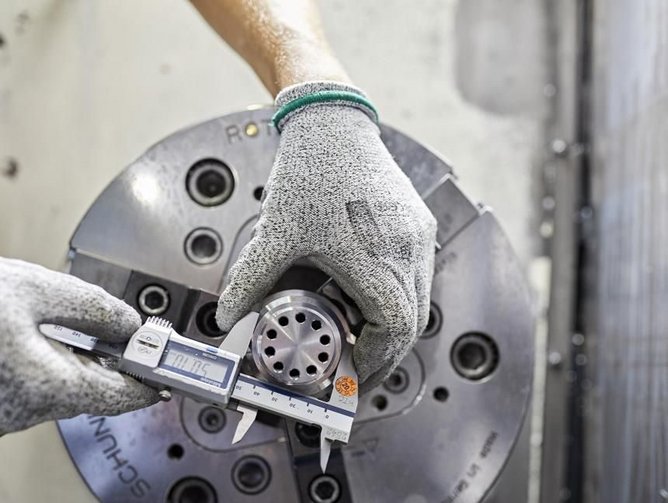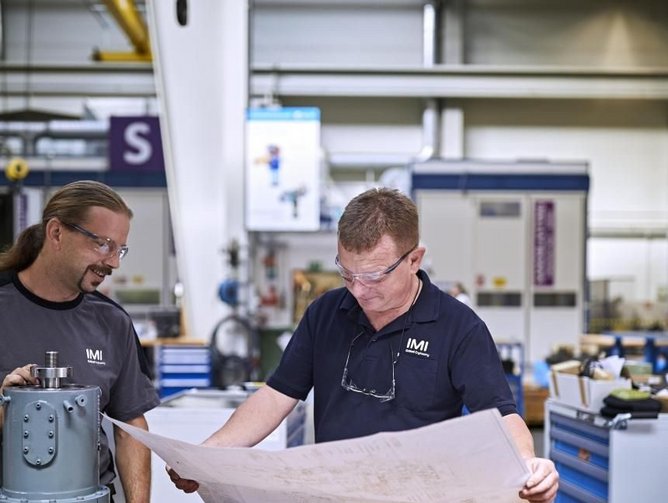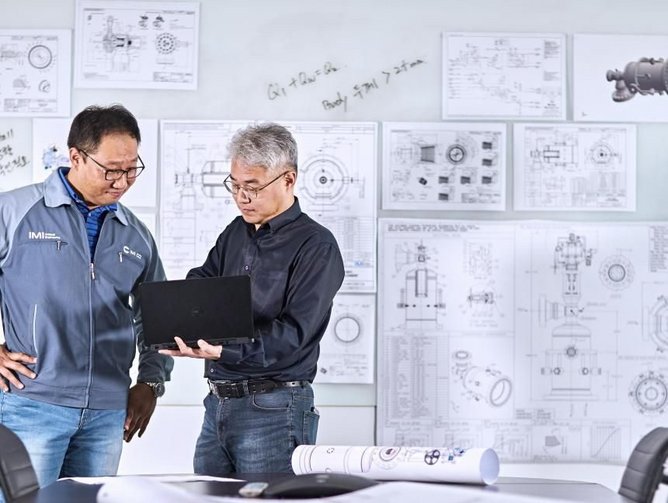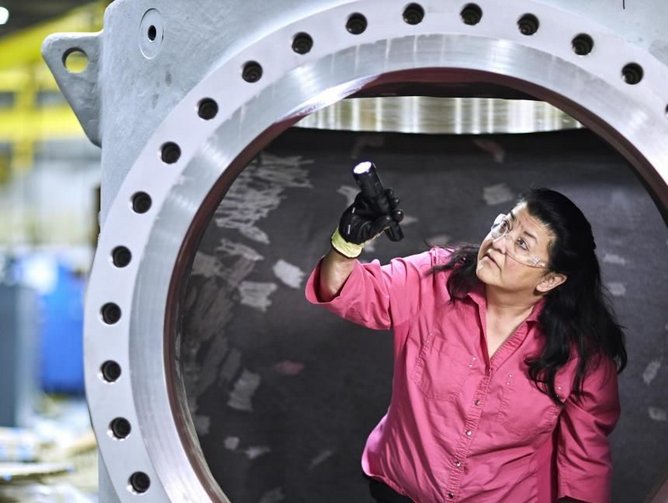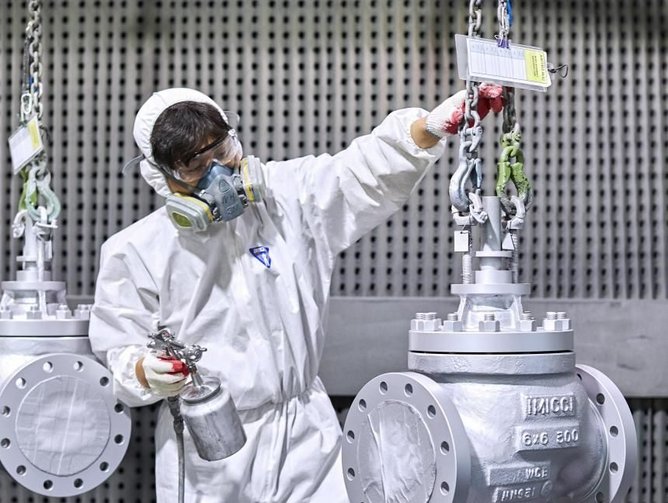IMI Critical Engineering: unifying its global supply chain
With over 25 years in engineering and operations, Aidir Parizzi, Director of Global Supply Chain at IMI Critical Engineering, has held various strategic sourcing roles within supply chain. “I started my journey in the automotive industry as a purchasing engineer for Volkswagen after completing my bachelors and postgraduate degree. As a result, I was soon attracted to the supply chain sector,” reflects Parizzi. “After 10 years in the automotive industry I moved to oil and gas where I worked for FMC Technologies and General Electric in global strategic sourcing roles. In 2017, I joined IMI Critical Engineering with one clear mission - to consolidate the global supply chain operations of the company which is spread across 18 sites, in 12 countries worldwide.”
Dating back to 1862, IMI Critical Engineering is part of IMI plc “a major player in the energy and industrial process sector,” comments Parizzi. “Our focus is to provide technically superior and cost effective flow control solutions, with every valve, actuator or control system we design and manufacture meeting our vision - breakthrough engineering for a better world.” Parizzi believes that what makes the company different from its competitors is the talent and diversity across its entire operations. “We are relentless in our focus on customers and our dynamic collaboration with supply chain engineering and commercial teams to ensure we are quick, reliable and long term partners in the market.” Since his time at the company, Parizzi has seen IMI Critical Engineering experience the same challenges as others in the industry. “We have obviously felt the impact of the sharp market decline in the last couple of years. However, as a leader in the power generation sector, we must evolve at the same pace as the market by quickly reacting to new trends such as LNG, natural gas and petrochemicals. In addition to this we are also investing in adjacent sectors such as our recent acquisition of American company PBM, which gives us market leadership in pharmaceuticals and sanitary valves. While we need to adapt in order to remain industry leaders, our values and mission remain the same.”
Over the last two years, Parizzi has been involved in multiple operations to achieve his mission of consolidating IMI Critical Engineering’s global supply chain operations. “The initial activities involved the basic fundamentals of modern supply chain procurement strategies. We started by putting our efforts into organising, understanding and analysing the data of our 18 business units. However, we did not expect our consolidated data from different ERP systems and procurement practices to automatically pull through system reports. Therefore, with significant effort and manual intervention, we established reliable and usable data that we could combine with pragmatic and effective analytics tools. With this organised supply base and spend information, we established a category management team, a global standard strategic sourcing process and a unified Approved Vendor List.” In consolidating its global supply chain, Parizzi highlights the benefits IMI Critical Engineering has seen as a result, such as: diversity of thought and experience, collaboration, consolidation of materials suppliers to develop strategic partnerships, hands on experiences and improved use of time to increase efficiency. Succeeding in this transformation might sound daunting, but Parizzi highlights that the key to achieving the consolidation of its global operations was not to radically change the way its teams were operating, but to structure every step of the process the same way, with the use of KPIs and common supply chain language. “Today we are more focused on a lean supply chain to allow for mutual benefits and collaboration with our suppliers,” comments Parizzi. For example “CF Booth’s flexibility, expertise and understanding of our product requirements, has been a key factor in sustaining a long term relationship of over 20 years at IMI Truflo Marine,” says Parizzi, “While Ridderflex’s outstanding quality and delivery performance, associated with extensive technical and commercial collaboration, enabled a true long-term strategic partnership with IMI Critical Engineering’.
Alongside the consolidation of its global supply chain operations, Parizzi reflects on the company's drive to digitally transform the company to remove its legacy systems. “Digitalisation is a major trend in our industry. However, like it is in most industries, there is still a lot of confusion and uncertainty surrounding the meaning of digitalisation and the actions required,” comments Parizzi. To combat this challenge, the company has developed several cross-functional teams working on digitisation projects. “The teams are working on short to medium term solutions that will make our supply chain more efficient, competitive and more supportive of customers. We do not embark on any project that will not meet these three objectives.”
During his time at the company, Parizzi has seen the company transform its ERP systems, data and analytics. “We are gradually transitioning our sites to a single system with the help of IFS. Since 2017, we have moved half our sites onto one system, which can produce automatic reports and data analysis, to streamline and facilitate best practices and solutions within the division. In addition to IFS, we also use Cedar Bay, a comprehensive data capture solution that allows us to track our materials across the whole production cycle.”
When it comes to innovative technology, Parizzi explains the company’s adoption of digital twins. “In early 2019, driven by the potential impact of Brexit, we developed a rudimentary digital twin for our supply chain. Since its initial development, it has evolved to incorporate design to cost methodology and cost models, to name a few. This allows us to quickly evaluate risk and opportunities using different scenarios and market trends.” In addition to digital twins, IMI Critical Engineering has been investing into artificial intelligence (AI) and machine learning. “We are currently investing in this technology to help our customers become more efficient and agile. We are harnessing AI, machine learning and big data - in collaboration with our human workforce - to enhance our well recognised Valve Doctor® program to increase plant's availability and production performance.”
With transformation and innovation comes a lot of disruption and change. At IMI Critical Engineering, Parizzi explains that a good change management strategy starts with making sure all stakeholders are part of any decisions and contribute to finding the right solutions. “We follow a change management strategy that continues well into execution, keeping everyone engaged and focused on the outcomes. We've also invested in a growth acceleration program methodology that is embedded into all areas of the company, helping us to achieve fast solutions, minimise costs and find inefficiencies.”
Reflecting on the company as a whole, Parizzi believes IMI Critical Engineering has been investing in a high-level transformation journey that will bring many benefits to the company. “IMI Critical Engineering has an excellent track record in anticipating and positioning for the rapid evolution of industries we serve. By continually investing in our people, our solutions and our service we’ve maintained a reputation for excellence that is crucial to our continuing success. The interests of our customers will always be central to that approach.”
